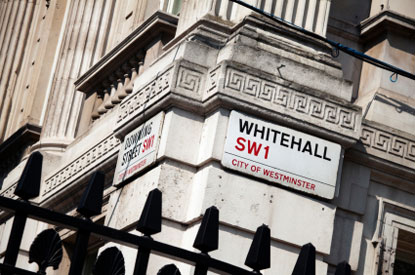By Richard Johnstone | 15 July 2014
The government’s failure to implement a strategic approach to reclaiming the £22bn of debt owed to Whitehall departments and agencies led to public sector borrowing being higher than needed, MPs said today.

Examining how central government manages the debt owed to it, the Public Accounts Committee found that £22bn was outstanding at the end of 2012/13 – equivalent to a fifth of the total public funding that goes into healthcare in the UK.
This was made up of unpaid taxes or fines, as well as overpaid tax credits that need to be reclaimed, the Managing debt owed to central government report stated.
Overall, Revenue & Customs was owed the majority of this (£15.1bn), with the Department for Work and Pensions and the Ministry of Justice accounting for nearly all of the remainder, committee chair Margaret Hodge said.
‘The government is owed this massive amount of money but it has failed to take a strategic, cross-government approach to managing that debt and getting more money paid to the Exchequer,’ she said
Whitehall’s treatment of debt has been characterised by ‘neglect and periodic large write-offs’, MPs concluded.
Although the total debt owed to government has been reduced by around £5.5bn in the last four years, this was the result of reductions in HMRC’s balance, including writing off £3.5bn deemed uncollectable.
In all departments expect HMRC, the level of debt has been increased in the past six years, which Hodge said was ‘just not good enough’ given the public spending cuts being implemented as part of the government’s deficit reduction plan.
‘The Treasury and key government departments have a job to do to get on top of this and get money owed flowing into the coffers,’ she said.
‘Failure to minimise debt has resulted in the government’s debt balances and losses being higher than necessary, and in government borrowing more as a consequence.’
MPs also highlighted that departments were making increasing use of debt-collection agencies to collect unpaid debts, with some £1.2bn of debt passed to private debt collectors on a Payment-by-Results basis in 2012/13. However, departments were not able to demonstrate they properly understood the benefits and risks of doing so, amid concerns that vulnerable debtors may be pursued inappropriately.
‘When it comes to using debt collection agencies, they must be vigilant in monitoring companies’ performance and behaviour,’ Hodge concluded.
Responding to the report, a government spokesperson said: ‘As part of our long-term economic plan, this government’s relentless focus on tackling fraud, error and debt has already saved £6.5bn.
‘Before 2010, Whitehall did not know how much overdue debt was owed to government and departments weren’t working together to address it. We are turning debt management around but hardworking people expect us to do more and we will.’




















